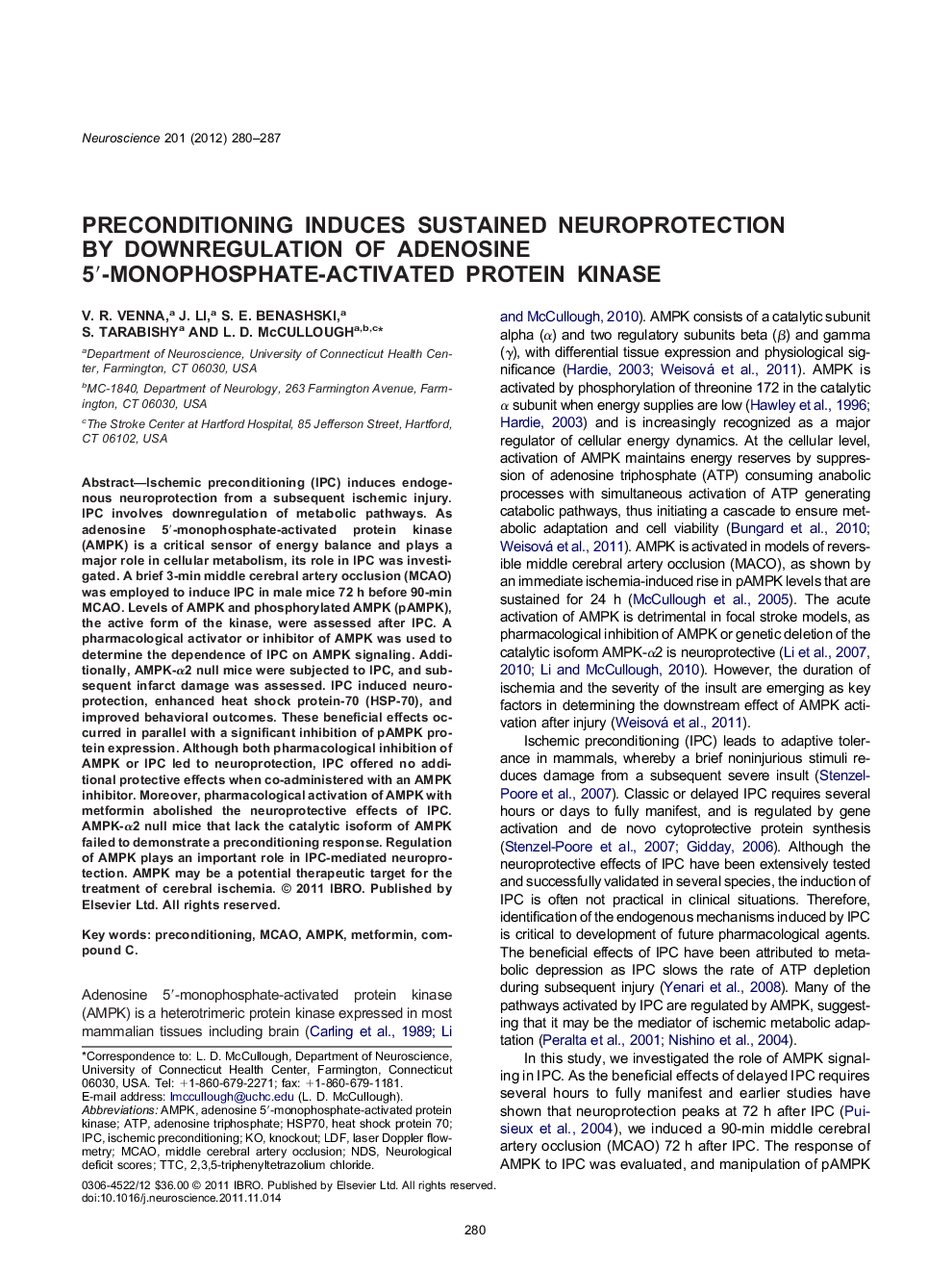| Article ID | Journal | Published Year | Pages | File Type |
|---|---|---|---|---|
| 4338561 | Neuroscience | 2012 | 8 Pages |
Ischemic preconditioning (IPC) induces endogenous neuroprotection from a subsequent ischemic injury. IPC involves downregulation of metabolic pathways. As adenosine 5′-monophosphate-activated protein kinase (AMPK) is a critical sensor of energy balance and plays a major role in cellular metabolism, its role in IPC was investigated. A brief 3-min middle cerebral artery occlusion (MCAO) was employed to induce IPC in male mice 72 h before 90-min MCAO. Levels of AMPK and phosphorylated AMPK (pAMPK), the active form of the kinase, were assessed after IPC. A pharmacological activator or inhibitor of AMPK was used to determine the dependence of IPC on AMPK signaling. Additionally, AMPK-α2 null mice were subjected to IPC, and subsequent infarct damage was assessed. IPC induced neuroprotection, enhanced heat shock protein-70 (HSP-70), and improved behavioral outcomes. These beneficial effects occurred in parallel with a significant inhibition of pAMPK protein expression. Although both pharmacological inhibition of AMPK or IPC led to neuroprotection, IPC offered no additional protective effects when co-administered with an AMPK inhibitor. Moreover, pharmacological activation of AMPK with metformin abolished the neuroprotective effects of IPC. AMPK-α2 null mice that lack the catalytic isoform of AMPK failed to demonstrate a preconditioning response. Regulation of AMPK plays an important role in IPC-mediated neuroprotection. AMPK may be a potential therapeutic target for the treatment of cerebral ischemia.
▶Brief ischemic preconditioning can induce brain tolerance and regulate AMPK activity. ▶Downregulation of AMPK contributes to the beneficial effects of IPC-mediated brain tolerance. ▶AMPK activation abolishes the beneficial effects in preconditioned brains. ▶Lack of preconditioning effects in AMPK-α2 KO animals.
